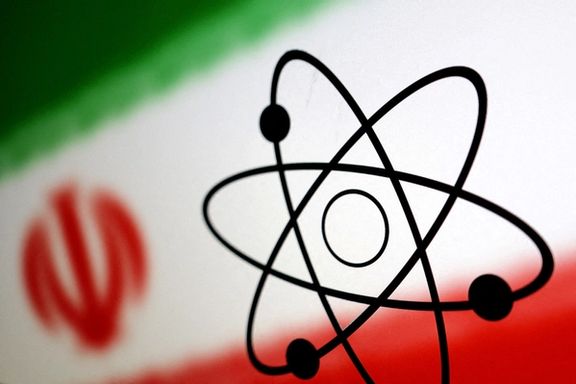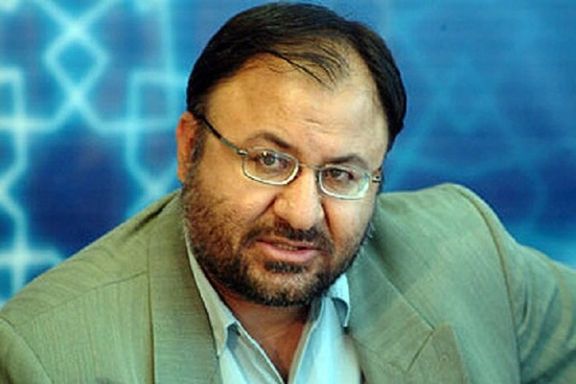Iranian Hardliners Insist On Their Demands In Nuclear Talks

As Iranian government leaders are busy examining a US response to a European nuclear proposal, hardliners in Tehran keep pushing for maximalist demands.

As Iranian government leaders are busy examining a US response to a European nuclear proposal, hardliners in Tehran keep pushing for maximalist demands.
The ultra-conservative Kayhan newspaper affiliated with the Supreme Leader’s office, once again on Saturday raised objections to the nuclear deal being finalized. The paper expressed dissatisfaction that “not all sanctions are supposed to be lifted.” It also protested that the US terrorist designation for the Revolutionary Guard will remain in place, and “worst of all”, there will be no meaningful guarantees for Iran.
A former vigilante group leader who often talks to Iranian media including the state television as "an academic and political analyst" says an agreement with the United States is "absolutely impossible" without first lifting the sanctions on Iran.
Sadegh Kushki told Didban Iran news website on Friday, August 26, that the United States is not in a position to give ultimatums or determine deadlines for Iran. He added that Iran's hardliners will not be happy with anything less than the terms of the 2015 nuclear agreement (JCPOA).
In yet another controversial statement, Kushki said, verification of the United States' commitment to the JCPOA should come before an agreement.
He repeated the government’s demand that a nuclear agreement should bring an economic breakthrough for Iran. He also reiterated that Iran will never accept to be committed to the terms of any agreement without making sure that Iran's economy will to benefit from the deal.

Many Iranian pundits and politicians have been arguing in recent weeks that removing the US sanctions will have a marginal impact since governance and the economic system need structural reforms.
According to Didban Iran, exchanging responses to EU's proposal by Iran and the United States suggested an imminent revival of the JCPOA, but as Russian diplomat Mikhail Ulyanov has said, the back-and-forth process could further prolong the negotiations.
Kushki, blaming Saudi Arabia for lack of an agreement so far, added that Arab states wish to exacerbate differences between the parties to boost international pressures on Iran.
In another development, Tehran's Friday prayer Imam, Ahmad Khatami claimed that the differences between Tehran and Washington are not about nuclear issues. "America has a problem with the Iranian regime," Khatami said, adding that "America's problem with Iran is that the Islamic Republic has a popular leader and whatever he says, the people will accept."
Khatami, seen as a firebrand loyalist of Supreme Leader Ali Khamenei, claimed that the United States has been conspiring against Iran during the past four decades and suggested that Iran should be resilient and continue to become stronger.
He went on to say that Iran's main demands in the negotiations are the lifting of US oil and banking sanctions. While reports in Iran and abroad maintain that Iran has relinquished some of its previous demands, Khatami reiterated that Iranian negotiators will not give any further concessions to the United States.
At the same time, while moderates at the Iranian parliament such as Jalil Rahimi Jahanabadi of the National Security Committee has said that many hurdles have been removed and a deal will be finalized within the next ten days, hardline lawmakers, including Ali Khezrian of the ultraconservative Paydari Party have claimed that the draft agreement contains many flaws and the issues of guarantees and verification are missing in the new agreement.